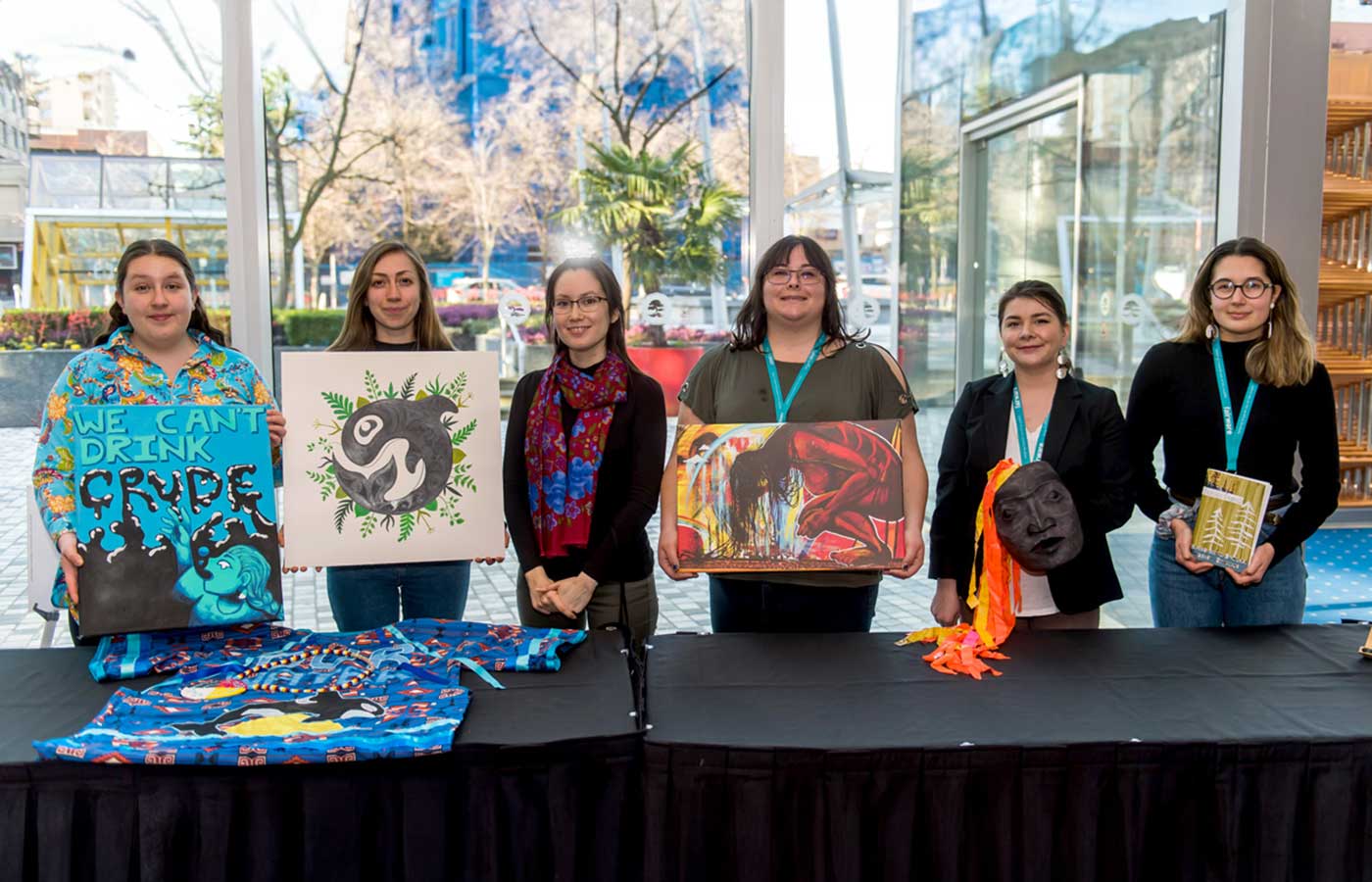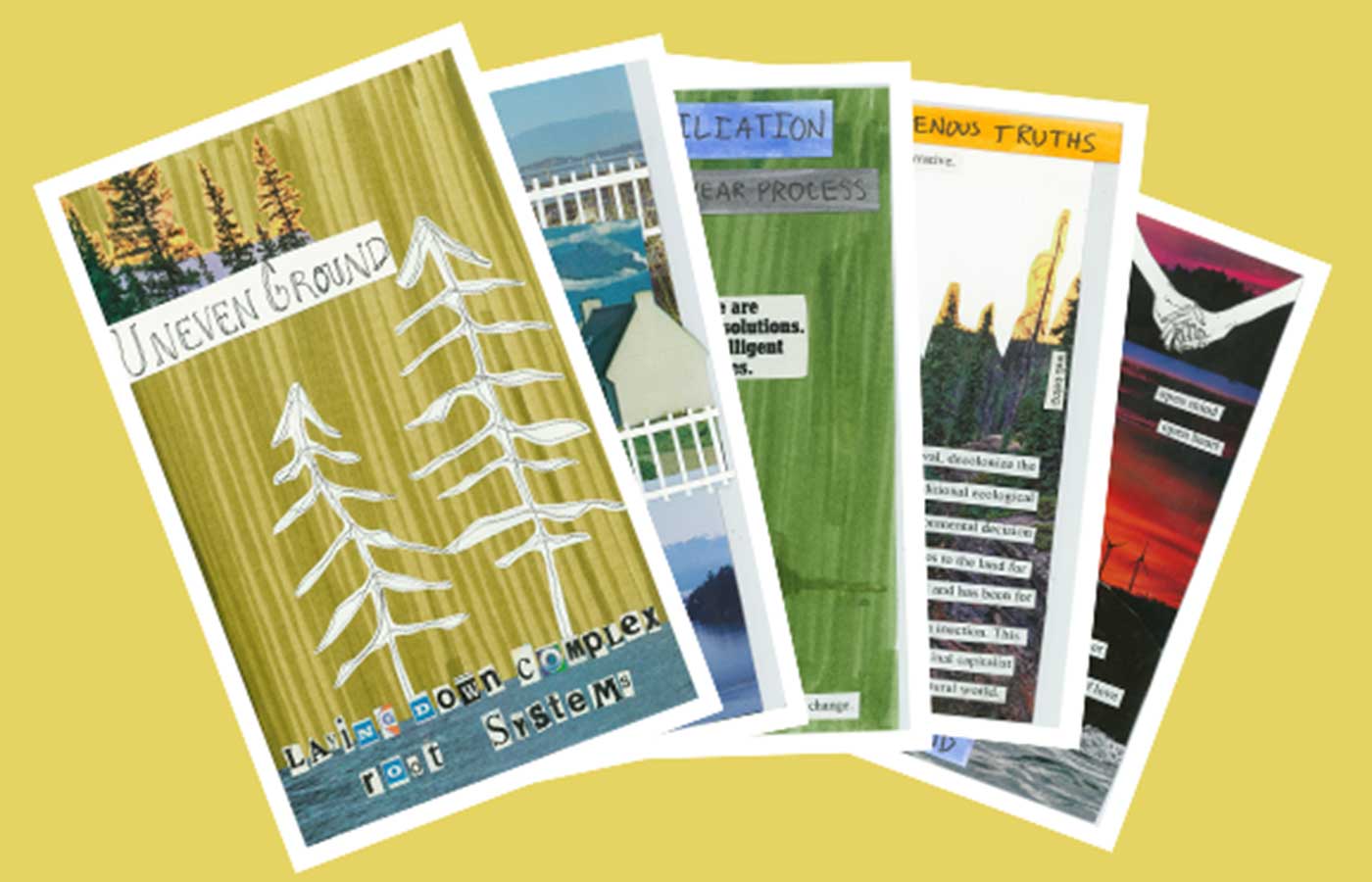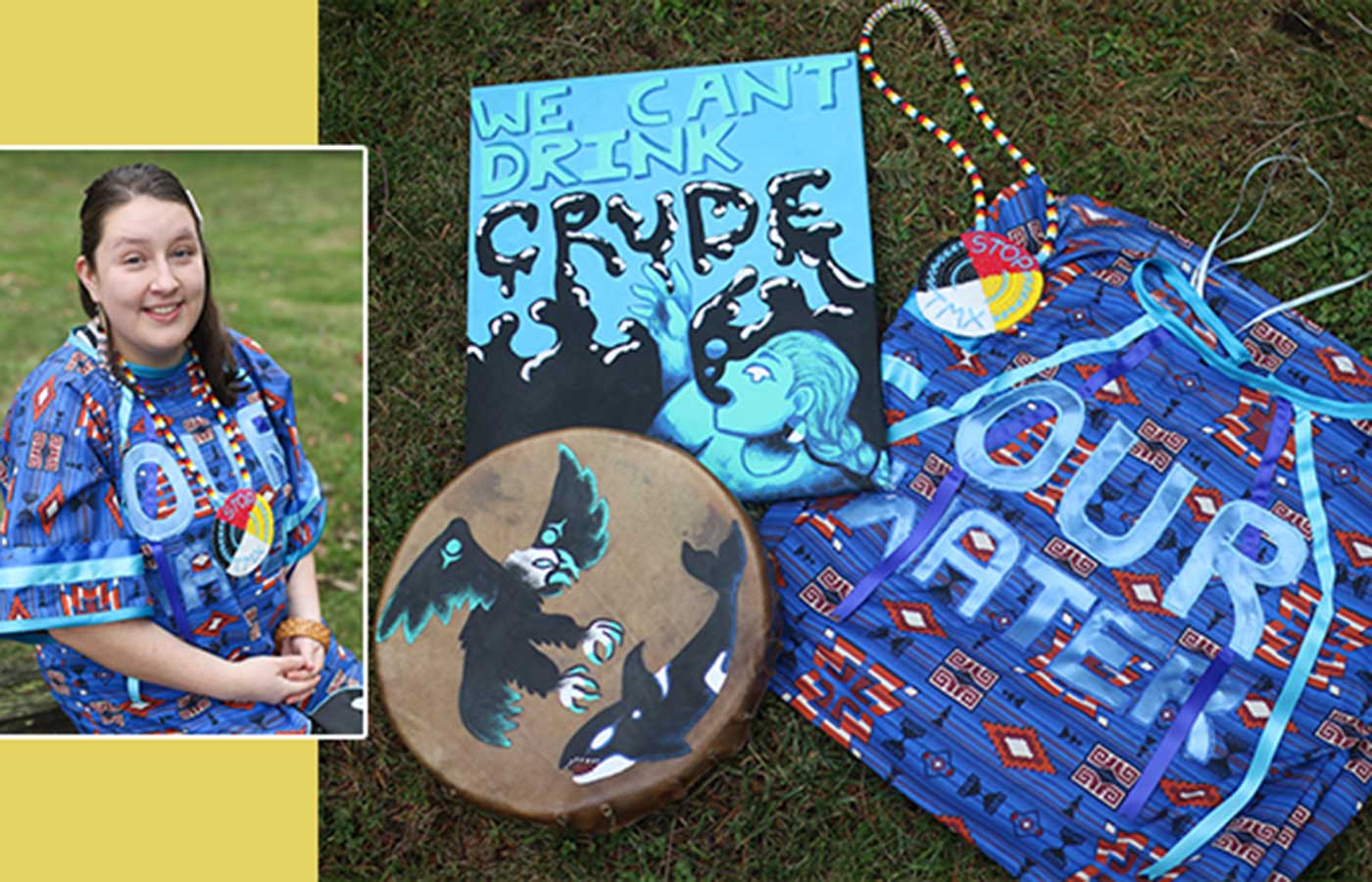Past Highlights
Here are a few past highlights from the Fraser Basin Council’s collaborative climate change work.
Highlights of Past Climate Initiatives
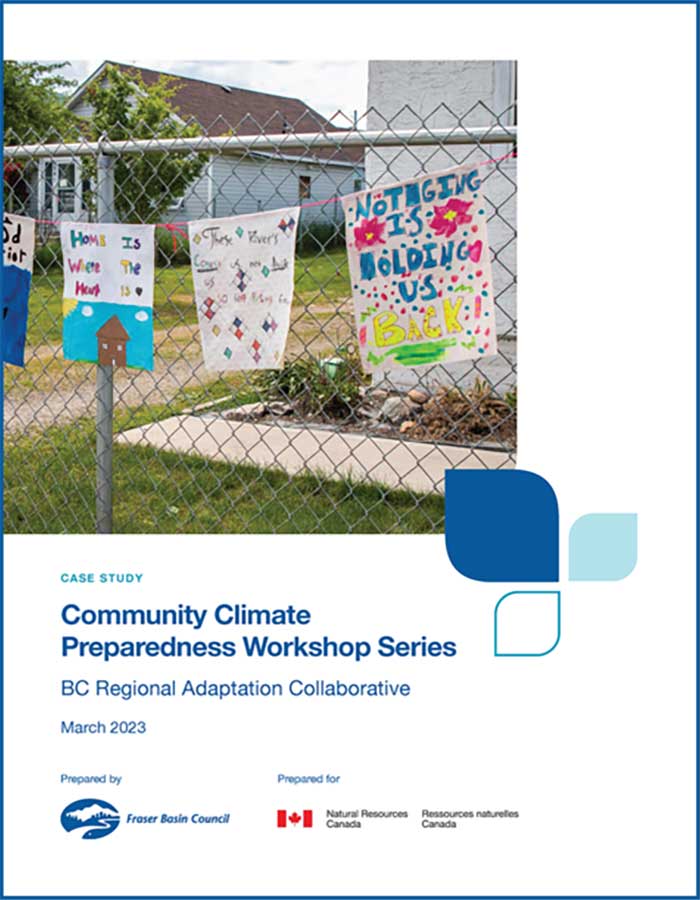 The Fraser Basin Council works with local governments in small communities and First Nations to take early steps on climate change preparedness.
The Fraser Basin Council works with local governments in small communities and First Nations to take early steps on climate change preparedness.
Here is a look at a Community Climate Preparedness Workshop Series, hosted within the BC Regional Adaptation Collaborative. This 2023 case study sums up: 1) key takeaways on the workshop series on adaptation and engagement planning processes and 2) successes and challenges of BC communities in taking on climate preparedness work.
The workshop series was managed by FBC and delivered by SHIFT Collaborative.
Read the workshop report!
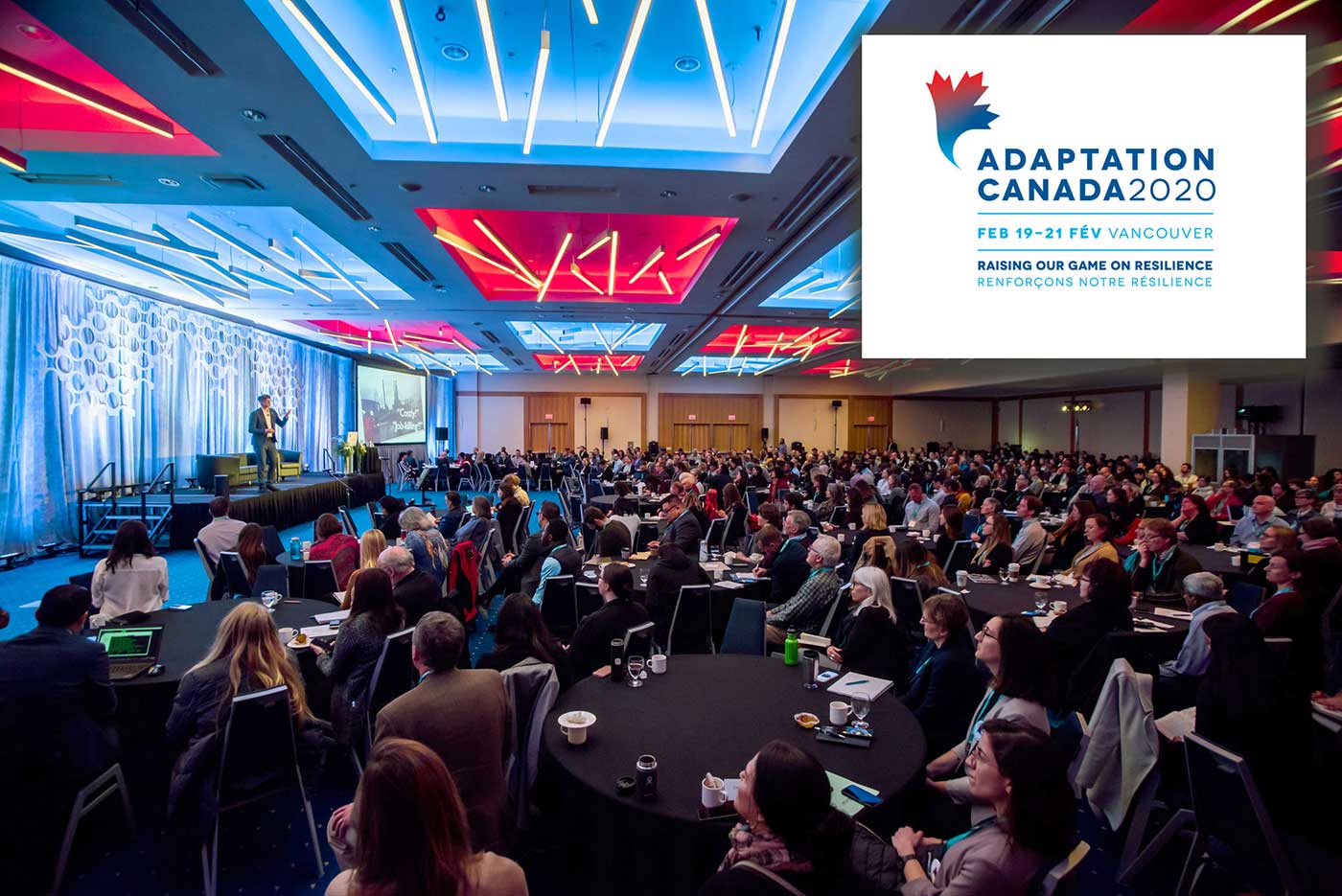
The Fraser Basin Council was proud to host Adaptation Canada 2020, Canada’s national conference on climate change adaptation. The conference built on the success of the 2016 conference in Ottawa.
Adaptation Canada 2020 was held February 19-21 (just ahead of COVID-19 restrictions) and offered three intensive days of learning, plus ample opportunities for networking and socializing. It welcomed over 700 participants who came together in Vancouver, on the traditional, ancestral and unceded territories of the Musqueam, Tsleil-Waututh and Squamish First Nations.
The conference featured 60 panels & workshops across eight tracks:
- Track 1: Financing Resilience
- Track 2: Showcasing Solutions
- Track 3: Ecological Resilience
- Track 4: Professional Practice and Capacity-Building
- Track 5: Raising Awareness and Broadening Engagement
- Track 6: Addressing Climate Change Inequities
- Track 7: Health
- Track 8: Youth
AC2020 was a national live conference that involved considerable travel by participants, but sustainability practices were adopted to contain the environmental footprint of the conference itself. These included a 100% plant-based menu, use of recycled/reusable lanyards, reliance on Attendify digital app instead of paper materials and all reusable dishware. The event drew high satisfaction ratings and comments from participants.
Co-Chairs Colin Hansen and Colleen Jacob thanked everyone who attended from across the country, including inspirational keynote speakers, Per Espen Stokes and Sheila Watt-Cloutier, and more than 170 other presenters, together with the attending Elders, special guests, staff, volunteers and youth observers/rapporteurs. Truly a shared success!
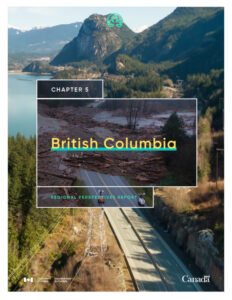 The Fraser Basin Council contracted Denni Clement to lead Indigenous engagement on climate change adaptation and to bring Indigenous perspectives to Canada’s national assessment on climate change: see the 2022 BC Chapter of the Regional Assessment.
The Fraser Basin Council contracted Denni Clement to lead Indigenous engagement on climate change adaptation and to bring Indigenous perspectives to Canada’s national assessment on climate change: see the 2022 BC Chapter of the Regional Assessment.
Another part of the initiative was a 2019 Indigenous Youth Climate Art Contest. Five youth artists were chosen with honoraria to create and share their artistic expressions on climate change. The artists brought the art pieces to display at FBC’s Adaptation Canada 2020 Conference and showcased in the BC Chapter report. Congratulations to artists Leah Anthony, Nak’azdli Band; Adrian Rain Flinn-Neeposh, James Bay Cree, Mistissini; Sarah Jim, Tseycum First Nation, W̱SÁNEĆ; Coralee Miller, Sylix, Okanagan Nation and Veronica Rose Waechter, Gitxsan Nation.
Thanks to Tsēmā Igharas and Sheldon Pierre Louis, the Indigenous Youth Climate Art Contest judges, and to Denni Clement who administered the project.
My Climate Story was created in 2019-2020 as an online, multimedia story map that features narratives and videos of BC youth who share the impacts of climate change on their own lives ─ and what’s inspired them to take climate action where they live, work and play.
The meaningful involvement of youth in climate change solutions is critical, and storytelling is a powerful way to show how BC youth are experiencing and addressing climate change in their communities.
Hear all the inspiring voices at My Climate Story!
The Community Energy Leadership Program (CELP) began in 2015 to help local government and First Nations invest in energy efficiency and clean energy projects. FBC provided administrative support for the program. CELP was part of the Province’s CleanBC plan to support clean and renewable energy for transportation, home heating and industrial applications — setting out a path to a cleaner, brighter future.
For a synopsis of this and other clean energy work, see CleanBC (Province of British Columbia) on the Province of British Columbia website. The most recent round of funding was in 2019 (with approved projects announced in 2020). No new funding rounds are scheduled at present.
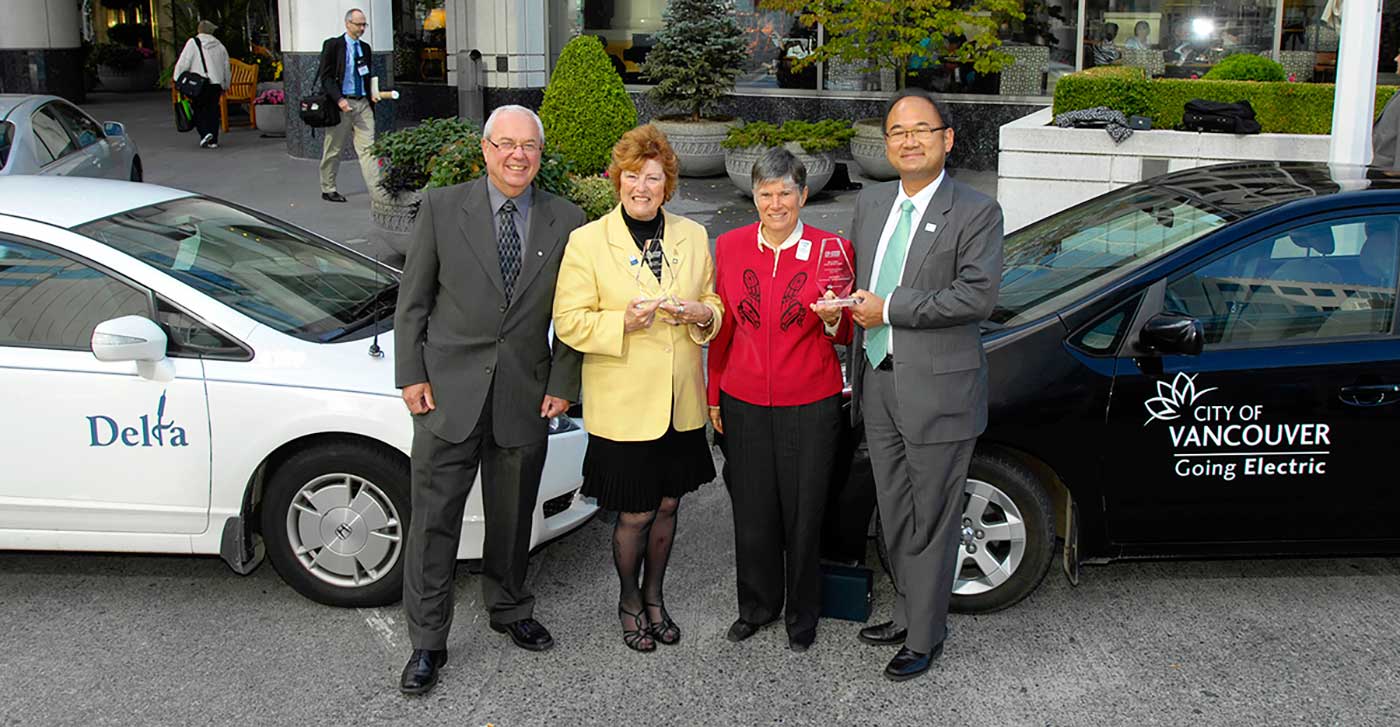
Launched by the Fraser Basin Council (FBC) in British Columbia in 2006, E3 Fleet was a unique, made-in-Canada program that helped public and private sector vehicle fleets achieve excellence in green performance.
E3 Fleet members gained access to helpful information, tools and resources, and two unique services:
- Fleet Review: This was an independent review of a fleet’s performance, offering an analysis of key performance indicators and opportunities for improvement.
- Fleet Rating: A fleet could also have its performance publicly recognized by qualifying for an E3 Fleet Rating at a Bronze, Silver, Gold or Platinum level. Ratings were based on accumulated points that related to a fleet’s action plan, training and awareness, idling reduction, vehicle purchasing, fuel data management, operations and maintenance, trip and route planning, utilization management, fuel efficiency and greenhouse gas performance.
E3 stands for Energy, Environment, and Excellence − the core focus of the program. The intent was to green up Canada’s fleets by helping managers tackle the tough issues − how to reduce operating costs, lower harmful emissions and increase efficiency. This has been the only program in Canada to recognize excellence in green performance, with 14 fleets achieving a rating and recognition during the time FBC was host.
To focus on other clean transportation work, FBC transferred management of the E3 Fleet program to Fleet Challenge Ontario, which was subsequently acquired by Deloitte in 2023.
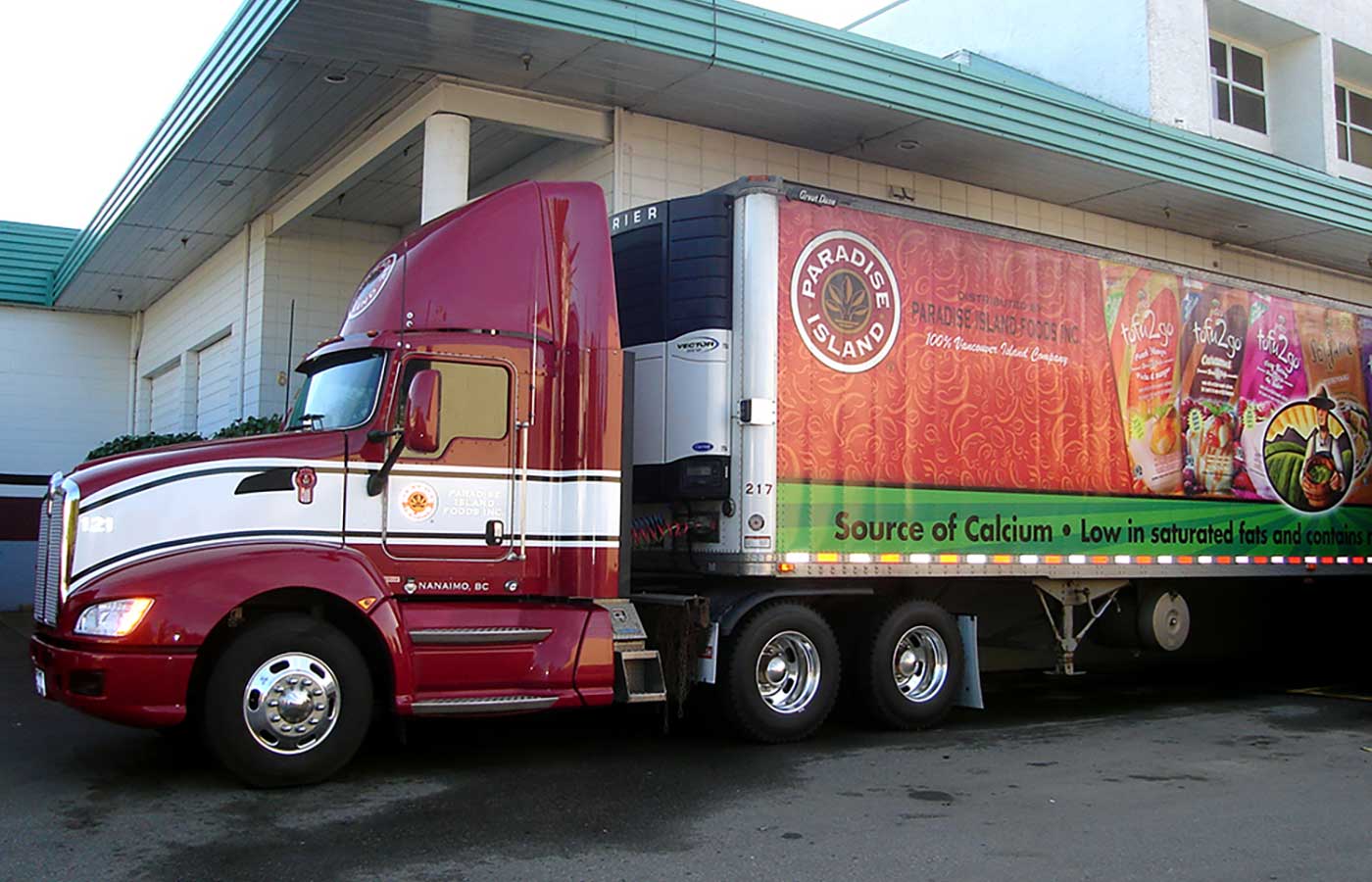
Between 2007 and 2009, FBC collaborated with the BC Trucking Association and others to support fleets in greening up. Managed by FBC and funded by the BC Ministry of Environment, the Green Fleets program offered education and incentives to help BC fleets managers and their teams better understand and introduce new technologies, alternative fuels, idling reduction policies and practices, driver education programs, advanced route planning and other progressive techniques.
In all, 136 fleets participated in one or more initiatives. These included trucking, utility, urban delivery, courier and government fleets, as well as port terminals. Together they achieved some important emissions reductions in just two years — an estimated 23,200 tonnes of greenhouse gases, 150 tonnes of NOx and three tonnes of PM2.5. A good start!
EnviroTrucks
One way of trimming emissions is to replace older trucks with Class 7 or 8 heavy-duty vehicles that feature a newer model of diesel engine. This change has potential to reduce particulate matter by 90% and smog-forming nitrous oxide particles by 45%. Add-on features can save fuel and drive down emissions even further. Fleet managers in the pilot project reported up to 30% improvement in fuel economy. Replacement trucks included:
- modern auxiliary power units designed to reduce idling time and cut greenhouse gas emissions by 13.5 tonnes per truck per year
- speed limiters that prevent a truck from going over a preset speed limit to decrease fuel consumption and greenhouse gas emissions
- aerodynamic improvements estimated to result in an annual per truck and trailer reduction of 17.5 tonnes of greenhouse gas emissions
Fleet Managers Network
Green Fleets BC also hosted a fleet managers network where members could discuss green technologies and practices (including biofuels, fuel data collection, electric vehicle options and fuel-efficient driving practices) and share their own experiences and strategies. The network proved popular, and the members enthusiastic. Some fleet manageres worked up a common specification for Class 7 medium-duty hybrid trucks, for purchase by their fleets.
Medium-Duty Hybrid Trucks
In 2004 FBC published The Hybrid Experience report, which documented the real-world performance of 100 hybrid electric vehicles of a number of different makes and models. This project came at a pivotal point in the history of hybrids when fleet managers were keen to understand the technology, its benefits and vehicle performance over time. The report documented lower fuel costs and significant reductions in air pollution. Some operators saw up to 60% in fuel savings over previous vehicles. The report found that hybrids were well-suited to stop-and-go applications, such as urban commuting, taxi service and courier work. Indeed, the taxi industry in urban BC was among the first sectors to embrace hybrids.
While light-duty hybrid electric cars were quickly recognized as commercially viable for fleets, medium-duty hybrid trucks took longer to gain momentum. Green Fleets BC helped build understanding of medium-duty hybrid trucks and worked with eight fleets that piloted the vehicles. Medium-duty trucks include urban food and beverage delivery vehicles, bucket trucks used by municipalities and utilities for aerial work, and urban recycling pick-up trucks. Participants at the time were Metro Vancouver, City of Richmond, UBC, City of Vancouver, BC Hydro, Canadian Springs, Fraser Valley Regional Library and Urban Impact Recycling.
BioFleet
By the mid-2000s, there was a need in public and private sector organizations across Western Canada to find reliable information on alternative fuels. Fleet managers wanted to know about biodiesel and how to safely introduce the fuel in their fleets of on-road vehicles and off-road equipment. Biodiesel is a cleaner burning, non-toxic, biodegradable alternative fuel that can be combined with petroleum diesel to run diesel engines. It can be produced from renewable plant-based sources such as canola and soybeans and from rendered animal fats.
To meet the need for information, the Fraser Basin Council created and launched “Biofleet for BC.” From 2006-2009 the program offered educational workshops, materials, videos and data on biodiesel, along with opportunities for fleets to participate in biodiesel demonstration projects to document the experience. The work was through a collaboration with municipalities, companies and fuel suppliers and with funding from Western Economic Diversification Canada. The Fraser Basin Council worked with other non-profit organizations in each of the four western provinces to deliver the program.
Since the Green Fleet initiatives, electric medium- and heavy-duty trucks have entered the marketplace, with new opportunities for GHG reduction. Visit FBC’s program site Plug In BC!
The BC Clean Air Research Fund (BC CLEAR) was a multi-year program to promote research excellence by funding transformational research of strategic importance for the management of air quality in British Columbia. Between 2008 and 2016, the BC CLEAR Fund awarded funding for over 30 research projects with strategic importance in the management of air quality in British Columbia.
The program also contributed through research scholarship to the work of BC graduate students who were focusing efforts on air quality solutions.
BC CLEAR was sponsored by the BC Ministry of Environment, jointly managed with Metro Vancouver and Environment Canada. The Fraser Basin Council administered the program in partnership with the BC Lung Association (now BC Lung Foundation).
BC’s remote communities face the challenge of generating their own energy, which often comes from diesel generators. Diesel power generation, however, is a significant contributor to poor air quality and climate change.
Remote Community Implementation (RCI) was a multi-year program (2009-2013) that assisted BC’s remote communities in reducing their dependence on diesel generation by funding capital costs of implementation or construction of clean energy systems, such as hydro, wind and solar energy. It was designed to complement other funding programs to assist communities in clean energy planning and research. The RCI Program also coordinated a community-to-community mentorship program, including to support solar energy installations.
The Fraser Basin Council administered the funding program initiative, with guidance from an external advisory committee, including representatives from First Nations organizations, provincial and federal departments and utilities.
Renewable energy construction projects included those under the leadership of Xeni Gwet’in First Nation, Tsay Keh Dene Nation, Dease River First Nation, Kwadacha Nation, Da’naxda’xw First Nation and the Qualicum School District (for a school on Lasqueti Island).
Community Action on Energy and Emissions (CAEE) offered financial and research support to BC local governments and First Nations to advance energy efficiency, energy conservation and emissions reduction through policy and planning tools. The program, administered by FBC between 2005 and 2010, was funded by the Province of BC, BC Hydro, FortisBC and the Community Energy Association of BC.
Over 50 First Nations and local governments participated in CAEE, showing innovation and inspiration. They developed new energy efficiency targets for at least one of the following:
- New single family and row house residential buildings
- New multi-unit residential buildings
- Existing single family and row house residential buildings
- Existing multi-unit residential buildings
- New industrial, commercial and institutional buildings
- Existing industrial, commercial and institutional buildings
Together, we can build a better future!
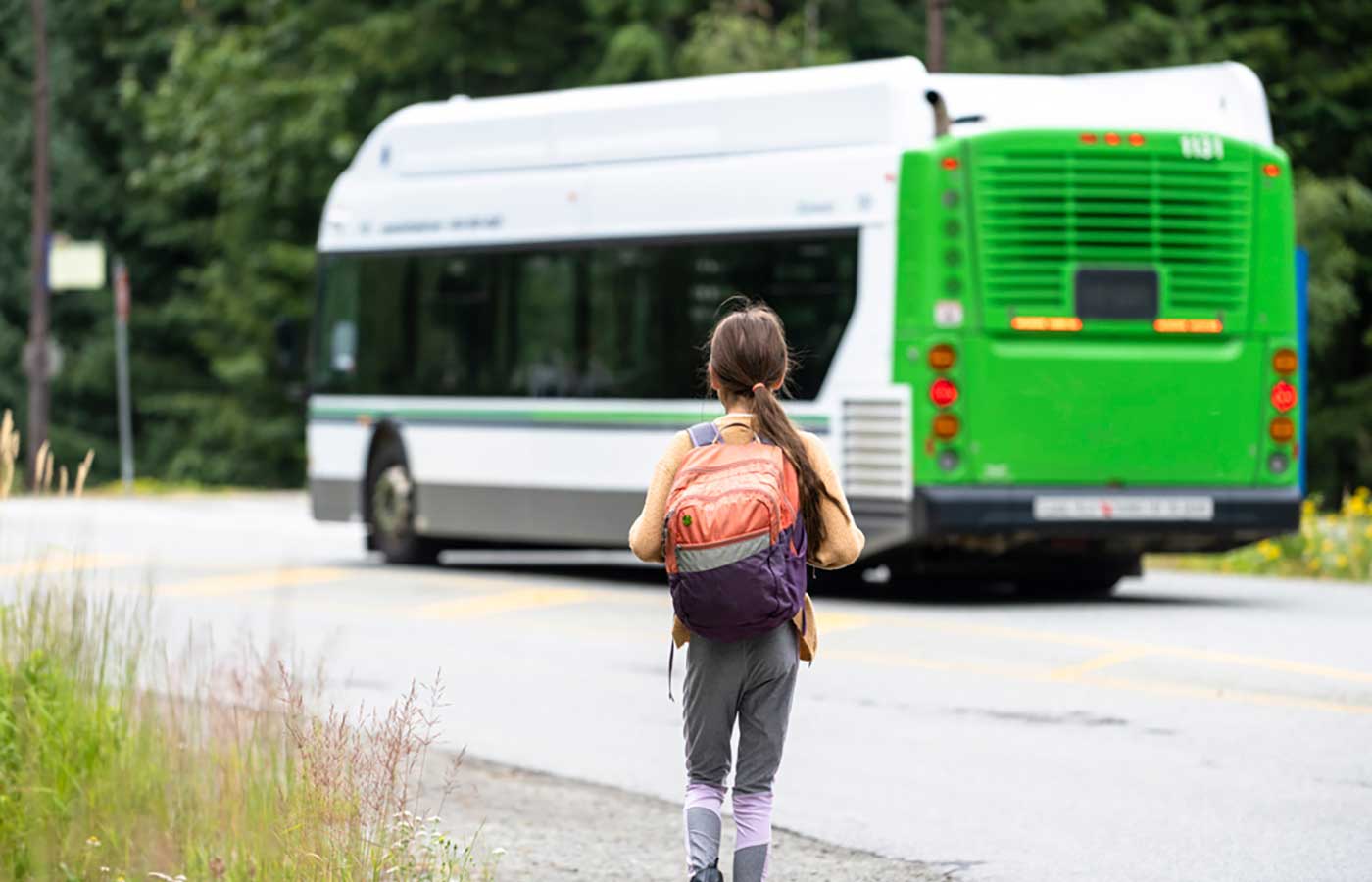
The Fraser Basin Council assisted a number of BC local governments — in particular communities of under 150,000 people — in planning more sustainable transportation systems through a program called “Transportation Demand Management for Small and Mid-Size Communities.”
Transportation demand management (TDM) is an approach that aims to reduce travel by automobile by 1) diverting single passenger vehicle trips to other modes of transportation and 2) by shifting automobile travel away from peak hours. A TDM strategy includes options for public transit and ride-sharing, as well as cycling and walking. There are multiple benefits: vehicle and fuel cost savings, more active transportation choices, fewer greenhouse gases and other harmful emissions, and an opportunity for BC communities to avoid large expenditures in the replacement and expansion of road infrastructure.
As part of program support to communities, a primer on TDM, Transportation Demand Management (TDM): A Small and Mid-Size Communities Toolkit, was published in 2009.
The BC Climate Exchange was an early website on climate change offered through FBC to connect individuals to many of the resources they needed to understand and take action on climate change.
Today FBC supports new online climate resources for BC communities on climate change impacts, mitigation and adaptation.
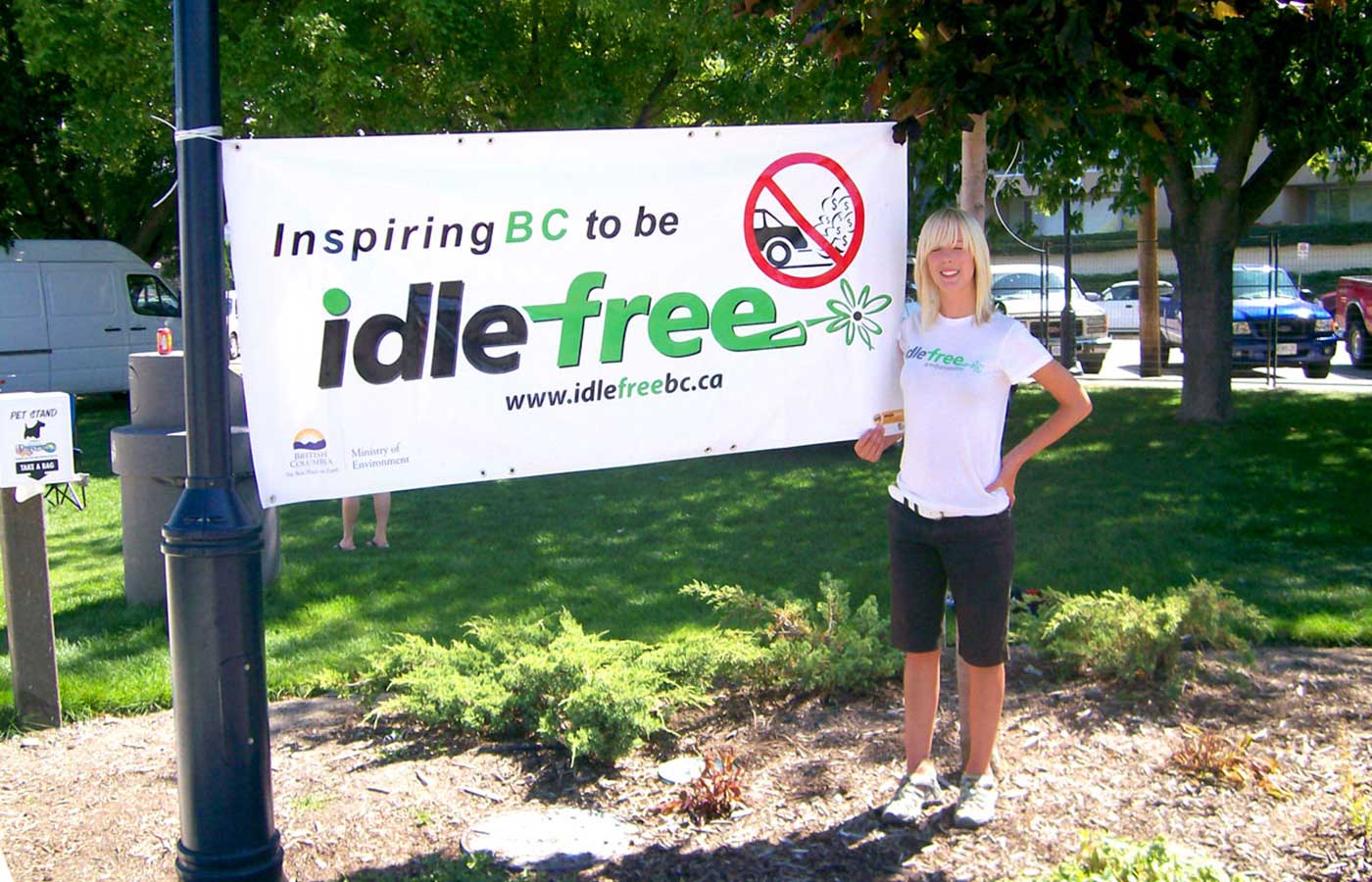
Idle Free BC was a multi-year campaign launched in 2006 to create awareness of the economic, environmental and health costs of vehicle idling, and to encourage local idling reduction programs. This was a partnership of the BC Ministry of Environment, FBC and Biofleet.
Over 100 communities and organizations joined Idle Free BC, with measurable results demonstrated within fleet operations. The City of Williams Lake, for example, saved 20% on the cost of fuel in its fleet and additional savings on maintenance.
FBC has worked on a number of Clean Air Forums in BC, to educate members of the community and inspire action, in partnership with the BC Lung Association (now BC Lung Foundation).



